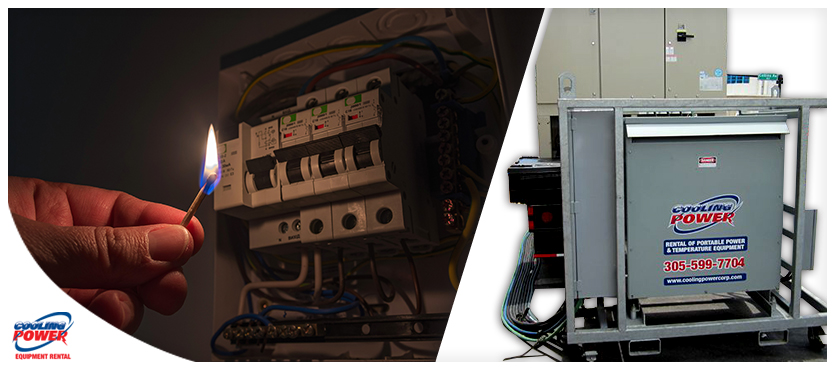In today’s unpredictable business environment, where unforeseen events such as power outages, natural disasters, and equipment failures can disrupt operations, having a robust emergency preparedness plan is essential for ensuring business continuity. Businesses that fail to prepare for such emergencies risk significant financial losses and damage to their reputation. In this article, we’ll explore the importance of developing effective emergency preparedness plans and highlight the role of backup equipment rentals, such as those offered by Cooling Power Corp, in ensuring uninterrupted operations during unexpected events in industrial settings.
Understanding the Importance of Emergency Preparedness
Before delving into the specifics of emergency preparedness plans, it’s essential to understand why they are crucial for businesses:
- Minimizing Downtime: Effective emergency preparedness plans help businesses minimize downtime during unexpected events, ensuring that operations can resume as quickly as possible.
- Protecting Assets and Resources: By having backup equipment readily available, businesses can protect their assets and resources from damage or loss during emergencies.
- Maintaining Customer Confidence: A well-executed emergency preparedness plan demonstrates a commitment to customer service and can help maintain customer confidence even in challenging circumstances.
- Compliance and Legal Obligations: Depending on the industry and location, businesses may have legal obligations to have emergency preparedness plans in place to ensure compliance with regulations.
Key Components of an Emergency Preparedness Plan
Developing an effective emergency preparedness plan involves several key components, including:
Risk Assessment: Identify potential risks and hazards that could disrupt business operations, such as power outages, natural disasters, equipment failures, and supply chain disruptions.
Communication Plan: Establish clear communication channels and protocols for notifying employees, stakeholders, and customers in the event of an emergency. Ensure that contact information is up-to-date and easily accessible.
Evacuation Procedures: Develop evacuation procedures and protocols for ensuring the safety of employees and visitors during emergencies that require evacuation, such as fires or chemical spills.
Backup Power and Equipment: Arrange for backup power sources and equipment rentals to ensure uninterrupted operations during power outages or equipment failures. Identify critical equipment and determine which items need backup support.
Training and Drills: Conduct regular training sessions and emergency drills to ensure that employees are familiar with emergency procedures and know how to respond effectively in different scenarios.
The Role of Backup Equipment Rentals
Backup equipment rentals play a crucial role in emergency preparedness plans by providing businesses with access to essential equipment and resources during unexpected events. Cooling Power Corp offers a range of emergency backup equipment rentals designed to ensure uninterrupted operations in industrial settings. Some of the key benefits of utilizing backup equipment rentals include:
- Immediate Availability: Backup equipment rentals are readily available when needed, allowing businesses to quickly respond to emergencies and minimize downtime.
- Flexibility and Scalability: Rental equipment can be tailored to meet the specific needs of businesses, with options available for both short-term and long-term rentals. This flexibility allows businesses to scale their operations up or down as required.
- Cost-Effective Solutions: Renting equipment on an as-needed basis can be more cost-effective than purchasing and maintaining equipment outright, especially for businesses that only require backup support intermittently.
- Maintenance and Support: Rental companies like Cooling Power Corp provide maintenance and support services for rental equipment, ensuring that it remains in optimal condition and ready for use whenever needed.
Guidance for Choosing Backup Equipment Rentals
When selecting backup equipment rentals for emergency preparedness plans, businesses should consider the following factors:
Reliability and Performance: Choose rental equipment from reputable suppliers known for their reliability and performance. Ensure that the equipment meets the specific requirements of your business and industry.
Response Time: Select a rental company that can provide rapid response times and deliver equipment promptly in emergency situations. Look for companies with local presence and quick turnaround times.
Equipment Compatibility: Ensure that rental equipment is compatible with existing infrastructure and systems within your facility. This includes considerations such as power requirements, space constraints, and integration with other equipment.
Service and Support: Evaluate the level of service and support provided by the rental company, including maintenance, technical assistance, and emergency response capabilities. Choose a company that offers comprehensive support throughout the rental period.
Conclusion
In conclusion, effective emergency preparedness plans are essential for ensuring business continuity and minimizing disruptions during unexpected events in industrial settings. Backup equipment rentals, such as those offered by Cooling Power Corp, play a crucial role in these plans by providing businesses with access to essential equipment and resources when needed most. By developing comprehensive emergency preparedness plans and leveraging backup equipment rentals, businesses can mitigate risks, protect assets, and maintain operations even in the face of adversity.
Visit Cooling Power Corp for more information about our industrial equipment rentals and solutions.

